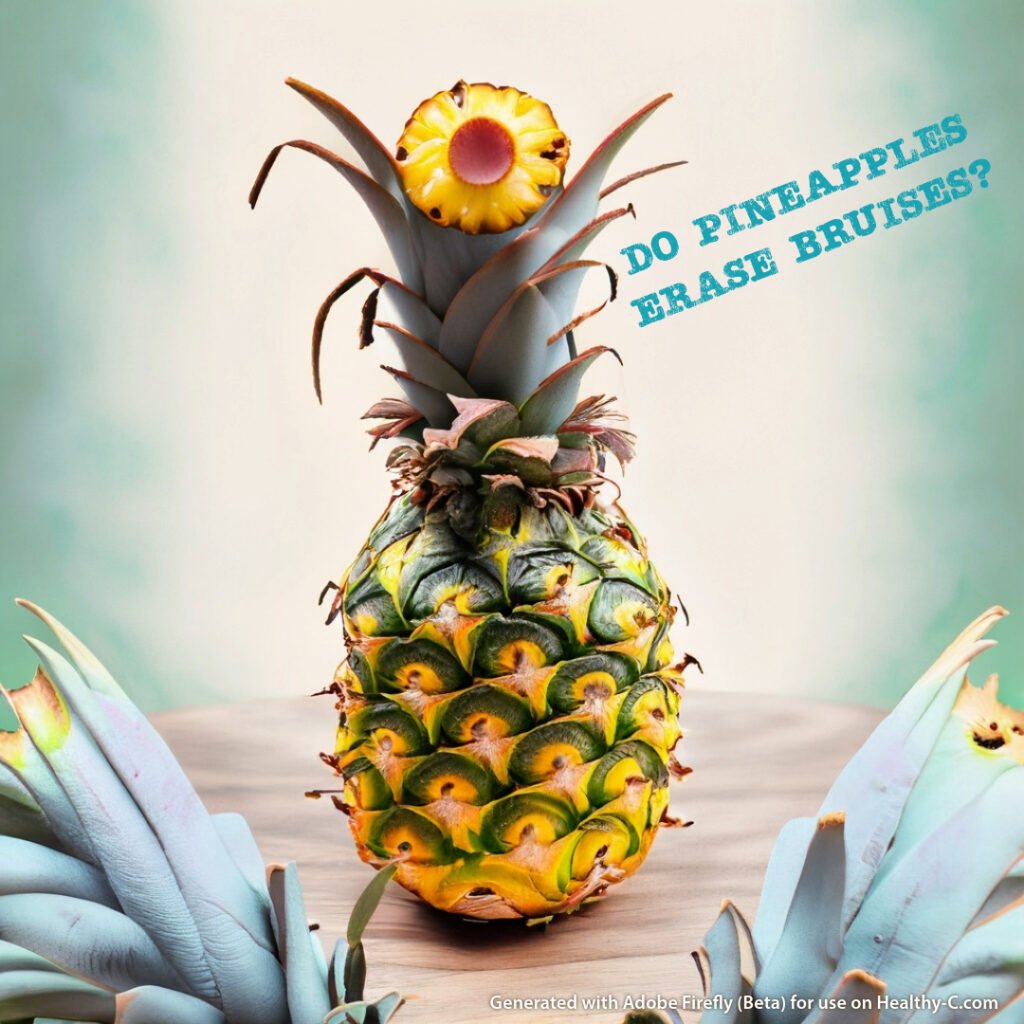Can pineapple help with bruising?

Today, I overheard a friend talking about the big bruise she got a few days ago. I thoughtlessly dismissed it as an old wives tale when the lady next to her suggested she eat pineapple to help her bruise heal faster. … Then another friend said she knows people who eat pineapple before certain surgeries as a preventative measure to reduce bruising.
Two people offering the same strange advice was enough to pique my curiosity. So here I am researching “Does pineapple help with bruising?” and recording my findings for my own future reference and for my visitors.
How can pineapple help alleviate bruising?
Disclaimer #1: Before I go any further, this is your reminder to always proceed with caution when making changes to your diet. Discuss these changes with your healthcare professional if you have or are being treated for any conditions or if you plan to have any procedures done. Also, use common sense if you have any food sensitivities or allergies, take any supplements or medications that could be affected by diet, or have conditions like diabetes.
Now for the science: Pineapple is high in Bromelain, a digestive enzyme with anti-inflammatory properties known to reduce bruising and swelling.
Other reasons to eat pineapple: Pineapple is a delicious fruit that is high in antioxidants and many nutrients, including Vitamin C, Vitamin B6, Niacin, Potassium, Magnesium, Fiber, and more.
Other ways to relieve bruising:
Pineapple is delicious! Unfortunately, I, like many people, am sensitive to it. I enjoy a few delicious slices with my daughter when it is in season. And I like a few small chunks in my sweet and sour chicken, a bowl of fruit salad, or on a slice of pizza. But for the most part, I avoid adding it to my cart.
Luckily, bromelain isn’t the only way to reduce bruising:
Quercetin, a flavonoid with antioxidant and anti-inflammatory properties, can be found in: apples, red onions, leafy green vegetables, citrus fruit, and dark-colored berries.
Vitamin K, if you are bruising easily due to insufficient Vitamin K, try adding more kale, spinach, Brussels sprouts, strawberries, or blueberries to your diet. (If you are taking blood thinners, discuss with your doctor before adding more vitamin K to your diet.)
R.I.C.E. stands for Rest, Ice, Compression, and Elevation. Do check if your specific injury will benefit more from ice, heat, or alternating the two.
Disclaimer #2: remember that anything in excess can be harmful. Do not take the information in this or any other article as a reason to consume large amounts of pineapple or any other food.
